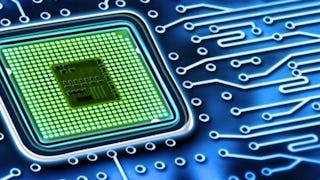Filter by
SubjectRequired
LanguageRequired
The language used throughout the course, in both instruction and assessments.
Learning ProductRequired
LevelRequired
DurationRequired
SkillsRequired
SubtitlesRequired
EducatorRequired
Explore the Computer Engineering Course Catalog

University of Maryland, College Park
Skills you'll gain: Security Engineering, Computer Hardware, Hardware Architecture, Threat Modeling, Threat Detection, Cybersecurity, Application Specific Integrated Circuits, Cryptography, Encryption, Emerging Technologies, Authentications, System Design and Implementation, Computational Logic

Coursera Project Network
Skills you'll gain: Prompt Engineering, Marketing Design, Generative AI, A/B Testing, Advertising, Marketing, ChatGPT, Content Creation, Marketing Strategies, Marketing Analytics, Customer Insights, Social Media Content, OpenAI
 Status: Free Trial
Status: Free TrialSkills you'll gain: UI/UX Research, Usability Testing, User Experience Design, Usability, Presentations, User Research, User Experience, Design Research, Research Design, User Centered Design, Research Methodologies, Prototyping, Interviewing Skills, Information Privacy
 Status: Free Trial
Status: Free TrialSkills you'll gain: Field-Programmable Gate Array (FPGA), Electronics, Hardware Design, Application Specific Integrated Circuits, Electronics Engineering, Serial Peripheral Interface, Computational Logic, Electrical Engineering, Computer Architecture, Schematic Diagrams, Semiconductors, Electronic Hardware, Electronic Components, Internet Of Things, Programmable Logic Controllers, Low Voltage, Embedded Software, Electronic Systems, Network Protocols, Embedded Systems
 Status: Free Trial
Status: Free TrialUniversity of Alberta
Skills you'll gain: Requirements Analysis, Agile Software Development, Agile Methodology, Kanban Principles, Project Planning, Requirements Elicitation, Sprint Retrospectives, Requirements Management, Functional Requirement, Business Requirements, Sprint Planning, Software Development Methodologies, Software Development Life Cycle, Scrum (Software Development), Software Technical Review, Code Review, Software Development, Product Requirements, Risk Management Framework, User Story

Yale University
Skills you'll gain: Global Positioning Systems, Geospatial Information and Technology, Geographic Information Systems, Physical Science, Spatial Analysis, Mechanics, Engineering, Physics, Electrical Engineering
 Status: Free Trial
Status: Free TrialCalifornia Institute of the Arts
Skills you'll gain: Information Architecture, Wireframing, Persona (User Experience), Mockups, User Experience Design, Responsive Web Design, Web Design, UI/UX Strategy, User Interface (UI) Design, User Centered Design, Interaction Design, Prototyping, Graphic and Visual Design, User Research, Web Language, HTML and CSS, User Flows, Design Elements And Principles, Human Computer Interaction, Typography
 Status: Free Trial
Status: Free TrialUniversity of Michigan
Skills you'll gain: Pandas (Python Package), Jupyter, NumPy, Data Manipulation, Data Science, Data Structures, Data Analysis, Statistical Analysis, Pivot Tables And Charts, Data Cleansing, Data Import/Export, Probability & Statistics, Python Programming, Programming Principles
 Status: Free Trial
Status: Free TrialUniversity of London
Skills you'll gain: Computer Science, Computer Systems, Web Applications, Computer Networking, Computational Thinking, Theoretical Computer Science, Human Computer Interaction, Hardware Architecture, Operating Systems, Cybersecurity, Problem Management, Software Architecture
 Status: Free Trial
Status: Free TrialJohns Hopkins University
Skills you'll gain: Bioinformatics, Unix Commands, Biostatistics, Exploratory Data Analysis, Statistical Analysis, Unix, Data Science, Data Management, Statistical Methods, Molecular Biology, Command-Line Interface, Statistical Hypothesis Testing, Linux Commands, Data Analysis Software, Statistical Modeling, Data Structures, Data Analysis, R Programming, Computational Thinking, Jupyter
 Status: Free Trial
Status: Free TrialUniversity at Buffalo
Skills you'll gain: Model Based Systems Engineering, Systems Engineering, Product Lifecycle Management, Intrusion Detection and Prevention, Security Controls, Performance Measurement, Control Systems, Continuous Monitoring, Anomaly Detection, Machine Controls, Incident Response, Digital Transformation, Vulnerability Assessments, Process Analysis, Data Sharing, Manufacturing Processes, Manufacturing Operations, Product Design, Manufacturing and Production, Constructive Feedback
 Status: Free Trial
Status: Free TrialJohns Hopkins University
Skills you'll gain: Statistical Analysis, R Programming, Statistical Programming, Data Analysis, Debugging, Simulations, Computer Programming Tools, Program Development, Data Structures, Performance Tuning, Data Import/Export
Computer Engineering learners also search
In summary, here are 10 of our most popular computer engineering courses
- Hardware Security: University of Maryland, College Park
- Prompt Engineering Generative AI for Marketing & Advertising: Coursera Project Network
- Conduct UX Research and Test Early Concepts: Google
- Chip based VLSI design for Industrial Applications: L&T EduTech
- Software Product Management: University of Alberta
- Rocket Science for Everyone: Yale University
- UI / UX Design: California Institute of the Arts
- Introduction to Data Science in Python: University of Michigan
- How Computers Work: University of London
- Genomic Data Science: Johns Hopkins University










